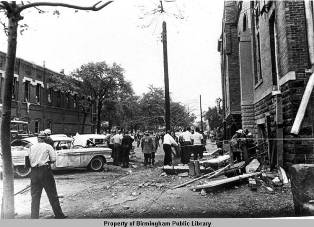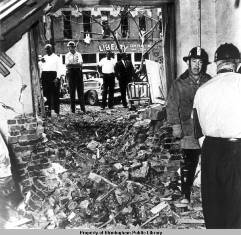(From Senator Brown's newsletter)
Fighting for Ohio Small Businesses and Ensuring a Healthy Financial Sector
With nearly two-thirds of all new jobs created by small businesses, a thriving small business sector is essential to getting our nation’s economy back on track. However, following the recent financial crisis, too many small businesses have not been able to access the credit required to hire new workers and expand their operations. To help overcome these obstacles, Senator Brown works with the private sector to develop policies that will help small businesses succeed and ensure that our financial sector is working to support American businesses.
Helping Small Businesses Access Capital and Promoting Emerging Small Businesses
Sen. Brown speaks with small business owners at a small business workshop in Columbus, OH.
Passed legislation to provide small businesses with much-needed capital, making it easier for small businesses to access loan programs through the Small Business Administration (SBA). Thanks to these resources, SBA, in 2011, approved 3,228 loans worth a record of $760 million for Ohio small businesses – representing a 58 percent increase from 2010.
Authored the Business Incubator Promotion Act to provide support to existing and start-up companies, helping them to grow and create jobs.
Supported legislation reauthorizing the Small Business Innovation Research (SBIR) program, the largest federal research and development initiative for small businesses.
Worked on a bipartisan basis to pass legislation reducing red tape for small businesses filing tax returns.
Helping Ohio Small Businesses Access Federal Resources
Senator Brown’s office has organized more than 30 small business workshops throughout Ohio with information on federal resources that help business owners grow and expand their business. These seminars have primarily focused on: Loan guarantee programs to help small businesses access capital.
Federal resources to help businesses find export opportunities and increase their export sales.
Resources to help Ohio small businesses sell to the government.
Tax relief through The Small Business Healthcare Tax Credit for Small Employers.
Tax incentives to help small businesses purchase new equipment and expand.
If you would like more information on these workshops or available resources for small businesses, please visit www.brown.senate.gov or contact Senator Brown’s Office at (888) 896-OHIO.
As a member of the Senate Committee on Banking, Housing, and Urban Affairs, Sen. Brown has consistently promoted a practical, Midwestern vision for the proper role of the financial sector in the broader economy.
Standing up to Wall Street Banks
Sen. Brown and SBA Administrator Karen Mills celebrate the record year of lending in Ohio with Costas Mavromichalis, owner of Constantino's Market.
Introduced the SAFE Banking Act, legislation that would put an end to bailouts and protect taxpayers by placing sensible size and leverage limits on Wall Street mega-banks to prevent any single financial institution from becoming “too big to fail”.
Urged regulators to take steps to ensure that our nation’s largest banks were not engaging in risky, speculative investments with FDIC insured money.
Fighting for ConsumersVoted to establish the Consumer Financial Protection Bureau (CFPB) which acts as a consumer advocate for all Americans and championed the nomination of Ohio’s Richard Cordray to serve as the CFPB’s first director.
Championed efforts to stop banks from charging excessive fees for ATM withdrawals and credit card purchases.
Supporting Ohio’s Banks and Credit UnionsCosponsored the Small Business Lending Enhancement Act, which raises the cap on the amount of loans credit unions can offer to small businesses that are hiring workers or expanding operations.
Advocated for the elimination of redundant banking regulations that are affecting ATMs.
Quick Reference Guide
Small Business Administration www.SBA.gov
Offices:
Cleveland Phone: (216) 522-4180
Columbus Phone: (614) 469-6860
Cincinnati Phone: (513) 684-2814
Export Assistance with the U.S. Commercial Servicehttp://trade.gov/cs/states/oh.asp
Cleveland Office: (216) 522-4750
Cincinnati Office: (513) 684-2944
Columbus Office: (614) 365-9510
Minority Business Development Agencywww.mbda.gov
Cleveland Office: (216) 592-2253
Ohio Small Business Development Centers
Phone: (614) 466-2718
For a list of local centers, visit: http://www.ohiosbdc.org/
Ohio Procurement Technical Assistance Centershttps://development.ohio.gov/Minority/ptac.htm
Phone: (800) 848-1300
Consumer Financial Protection Bureau (CFPB):http://www.consumerfinance.gov/
Federal Deposit Insurance Coporation (FDIC):http://www.fdic.gov/
FDIC – consumer protection:http://www.fdic.gov/consumers/





